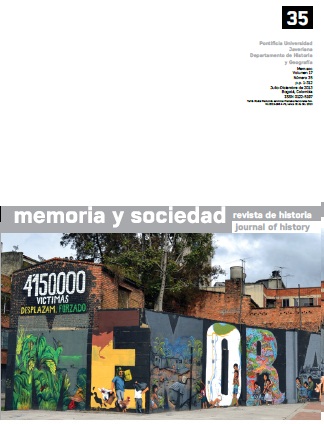Abstract
This article presents a reflection on the relationship between heritage, memory and the educational aspect of museums. For this purpose, it analyzes the development of a museological project carried out between 2006 and 2010 in a school with low-income students, aged between 4 and 6 years old, located near the Museum of Archaeology and Ethnology at the University of São Paulo. This project was inspired by the principles of social inclusion and a participatory methodology was used. It counted on the development of different strategies including specific workshops conducted in the school and in the Museum. These strategies generated positive results that led the children to appreciate their local heritage. They also demonstrated that inclusive education projects reinforce ties between museums and poor communities as well as improve self-esteem issues and promote notions of belonging.The journal Memoria y Sociedad is registered under a Creative Commons Attribution 4.0 International Public License. Thus, this work may be reproduced, distributed, and publicly shared in digital format, as long as the names of the authors and Pontificia Universidad Javeriana are acknowledged. Others are allowed to quote, adapt, transform, auto-archive, republish, and create based on this material, for any purpose (even commercial ones), provided the authorship is duly acknowledged, a link to the original work is provided, and it is specified if changes have been made. Pontificia Universidad Javeriana does not hold the rights of published works and the authors are solely responsible for the contents of their works; they keep the moral, intellectual, privacy, and publicity rights.
Approving the intervention of the work (review, copy-editing, translation, layout) and the following outreach, are granted through an use license and not through an assignment of rights. This means the journal and Pontificia Universidad Javeriana cannot be held responsible for any ethical malpractice by the authors. As a consequence of the protection granted by the use license, the journal is not required to publish recantations or modify information already published, unless the errata stems from the editorial management process. Publishing contents in this journal does not generate royalties for contributors.

